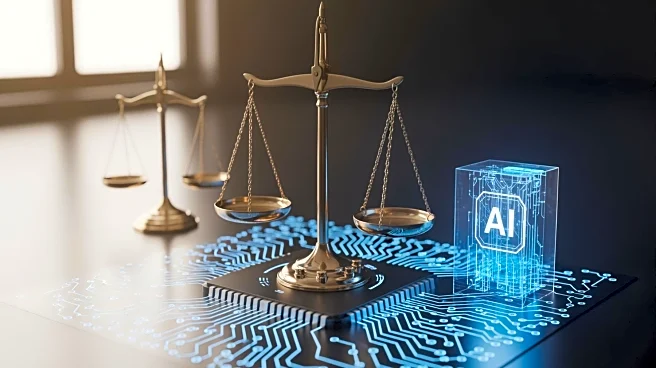What's Happening?
The increasing use of AI in various industries is leading to workforce reductions, with companies like Amazon and Meta implementing layoffs as they integrate AI into their operations. This trend is raising
concerns about the future of legal jobs, as AI tools become more capable of handling tasks traditionally performed by lawyers. Some legal professionals view AI as a threat, while others see it as an opportunity to rethink how legal services are delivered. The rise of AI-assisted pro se litigants, who use AI tools to represent themselves in legal matters, is also challenging traditional legal practices.
Why It's Important?
The integration of AI into the legal field could significantly alter the landscape of legal services, potentially reducing the demand for certain legal roles while creating new opportunities for innovation. As AI tools become more accessible, individuals may increasingly rely on them for legal assistance, impacting the traditional attorney-client relationship. Legal professionals who adapt to these changes by leveraging AI to enhance their services may gain a competitive edge, while those who resist may face challenges in maintaining relevance.
What's Next?
As AI continues to influence the legal industry, professionals will need to explore ways to integrate AI into their practices, focusing on tasks that require human judgment and expertise. Educational initiatives, such as courses on responsible AI use for advocacy, may help bridge the gap between technology and traditional legal services. The ongoing evolution of AI in law will likely prompt discussions about ethical considerations and the role of human lawyers in an AI-driven future.
Beyond the Headlines
The shift towards AI-assisted legal services raises broader questions about access to justice and the democratization of legal assistance. By empowering individuals with AI tools, the legal field may become more inclusive, offering affordable solutions to those who cannot afford traditional legal representation. However, this transformation also necessitates careful consideration of the ethical implications and potential biases inherent in AI systems.








